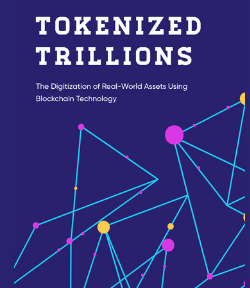
The Evolution of Cryptocurrency ETFs: A New Era of Investment
Unlocking New Investment Horizons: The Impact of Spot Bitcoin and Ethereum ETFs.
The financial markets have reached a pivotal milestone with the approval of spot Bitcoin (BTC) and Ethereum (ETH) Exchange-Traded Funds (ETFs). Unlike their futures-based predecessors, these ETFs directly hold the underlying assets, offering investors a transparent and potentially less volatile way to gain exposure to leading cryptocurrencies. This development signifies a major step in the maturation of digital assets within mainstream finance and opens new avenues for institutional investment.
The Path to Approval
The journey to the approval of spot Bitcoin and Ethereum ETFs has been long and fraught with regulatory hurdles. The Securities and Exchange Commission (SEC) had previously approved Bitcoin and Ethereum futures ETFs in 2021, but spot ETF applications faced repeated rejections. The breakthrough came in 2023 with a court ruling in favor of Grayscale Investments, which found the SEC’s reasons for rejecting their spot ETF application inadequate. This ruling, coupled with the increasing acceptance of digital assets, paved the way for the SEC to approve eleven spot ETFs in 2024.
Advantages for Institutional Investors
For institutional investors, the introduction of spot cryptocurrency ETFs offers several significant advantages. These ETFs provide easier access to Bitcoin and Ethereum, allowing institutions to add these digital assets to their portfolios without the complexities of direct ownership, such as securing private keys or using cryptocurrency exchanges. This convenience is complemented by the diversification potential of cryptocurrencies, which often exhibit low correlation with traditional asset classes, enhancing portfolio diversification and potentially improving risk-adjusted returns.
However, it is crucial for investors to recognize the inherent risks associated with these investments. Cryptocurrencies are highly volatile, and their regulatory environment is still evolving, which could impact the value and operation of these ETFs. Additionally, investors must consider the associated costs, such as sponsor fees ranging from 0.20% to 1.50%.
Ethereum’s Unique Position
While Bitcoin spot ETFs present compelling investment opportunities, Ethereum spot ETFs offer distinct advantages due to the technological versatility of the Ethereum blockchain. Unlike Bitcoin, which primarily serves as a store of value, Ethereum supports smart contracts and decentralized applications (dApps), enabling innovative use cases in decentralized finance (DeFi) and non-fungible tokens (NFTs). This functional diversity provides Ethereum with a significant edge in terms of potential for innovation and market disruption.
Ethereum’s adoption across various sectors underscores its growing importance. Many projects and companies are building on the Ethereum blockchain, creating a robust ecosystem that enhances its long-term value proposition. The recent transition to Ethereum 2.0, with its shift from proof-of-work (PoW) to proof-of-stake (PoS), has significantly improved its scalability, security, and sustainability. These technological upgrades bolster investor confidence and attract more users to the network.

The Institutional Investor Landscape
The introduction of Bitcoin and Ethereum spot ETFs has broadened access to the cryptocurrency market for a variety of institutional investors. Pension funds, hedge funds, endowments, foundations, trusts, and high-net-worth individuals (HNWIs) are now exploring these new investment vehicles based on their distinct risk-return objectives.
Pension Funds: Pension funds manage retirement savings and prioritize capital preservation and consistent returns. While they are generally risk-averse, the historically low correlation of cryptocurrencies with traditional asset classes makes spot ETFs a potential diversifier.
Hedge Funds: Hedge funds, known for their high risk tolerance and short investment horizons, are likely to embrace spot ETFs for their potential high returns. These funds thrive on trading price movements and may leverage the inherent volatility of cryptocurrencies for short-term gains.
Endowments and Foundations: Endowments, with their perpetual time horizons, and foundations, with more immediate funding obligations, may allocate a small portion of their portfolios to cryptocurrencies. These digital assets can offer substantial appreciation over time, enhancing their ability to support institutional missions.
Trusts and HNWIs: Trusts and HNWIs, often managed by Registered Investment Advisors (RIAs), may utilize spot ETFs for potential capital appreciation, diversification, or hedging purposes. The innovative nature of cryptocurrencies and the potential for outsized returns make these instruments attractive to wealthier individuals.
The Impact and Future of Spot Cryptocurrency ETFs
The introduction of spot Bitcoin and Ethereum ETFs has significantly impacted the cryptocurrency investment landscape. These ETFs have democratized access to cryptocurrencies, attracting a diverse investor base that includes institutional and retail investors who previously were hesitant or unable to invest directly in digital assets. The regulated nature of these instruments offers increased accessibility and security, fostering significant volume growth and creating a positive feedback loop of increasing demand.
Looking ahead, the future dominance of spot ETFs is anticipated to persist in the near term. The convenience, security, and regulatory compliance offered by these instruments are likely to continue attracting a broad spectrum of investors. However, futures-based ETFs may still find relevance for investors pursuing specific strategies, such as leveraging positions or engaging in short-selling.
As the SEC continues to navigate the regulatory landscape for cryptocurrency ETFs, other prominent cryptocurrencies like Cardano (ADA) and Solana (SOL) stand out as potential candidates for future approval. Both cryptocurrencies are prominent smart contract platforms with substantial market capitalizations and robust ecosystems. Their approval would further diversify the range of available cryptocurrency ETFs and enhance institutional adoption.
Key Takeaways
The introduction of spot Bitcoin and Ethereum ETFs represents a pivotal development in financial markets, providing a more direct and transparent way for institutional investors to gain exposure to leading cryptocurrencies. Despite the inherent volatility and regulatory uncertainties, the long-term potential for substantial returns and diversification benefits makes these ETFs an attractive proposition. As these products gain traction, they are expected to play a significant role in shaping the future landscape of cryptocurrency investments, fostering greater market stability and efficiency. The continued evolution of the regulatory environment and the potential approval of additional cryptocurrencies like Cardano and Solana will further influence the trajectory of cryptocurrency ETFs and their adoption by institutional investors.






